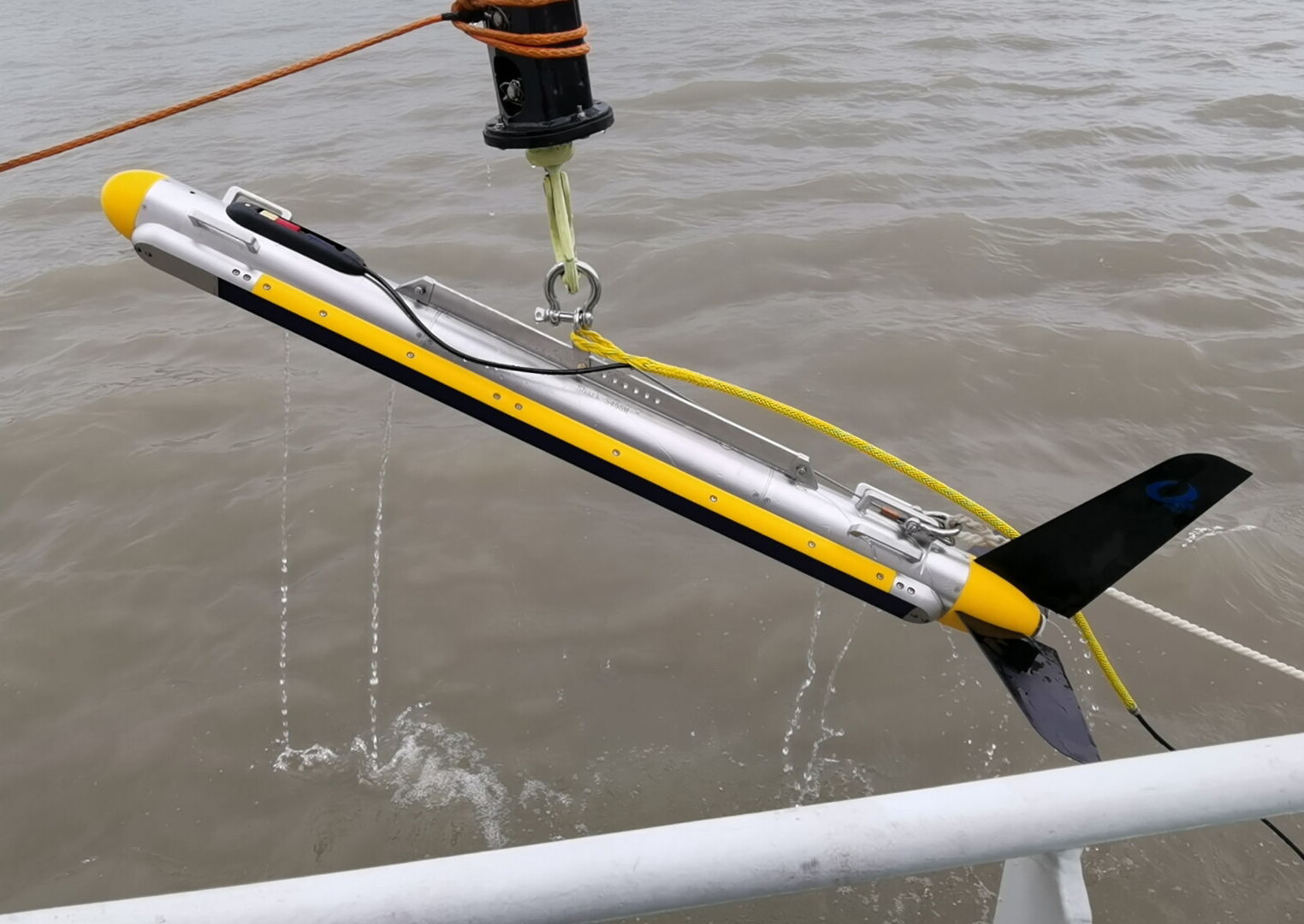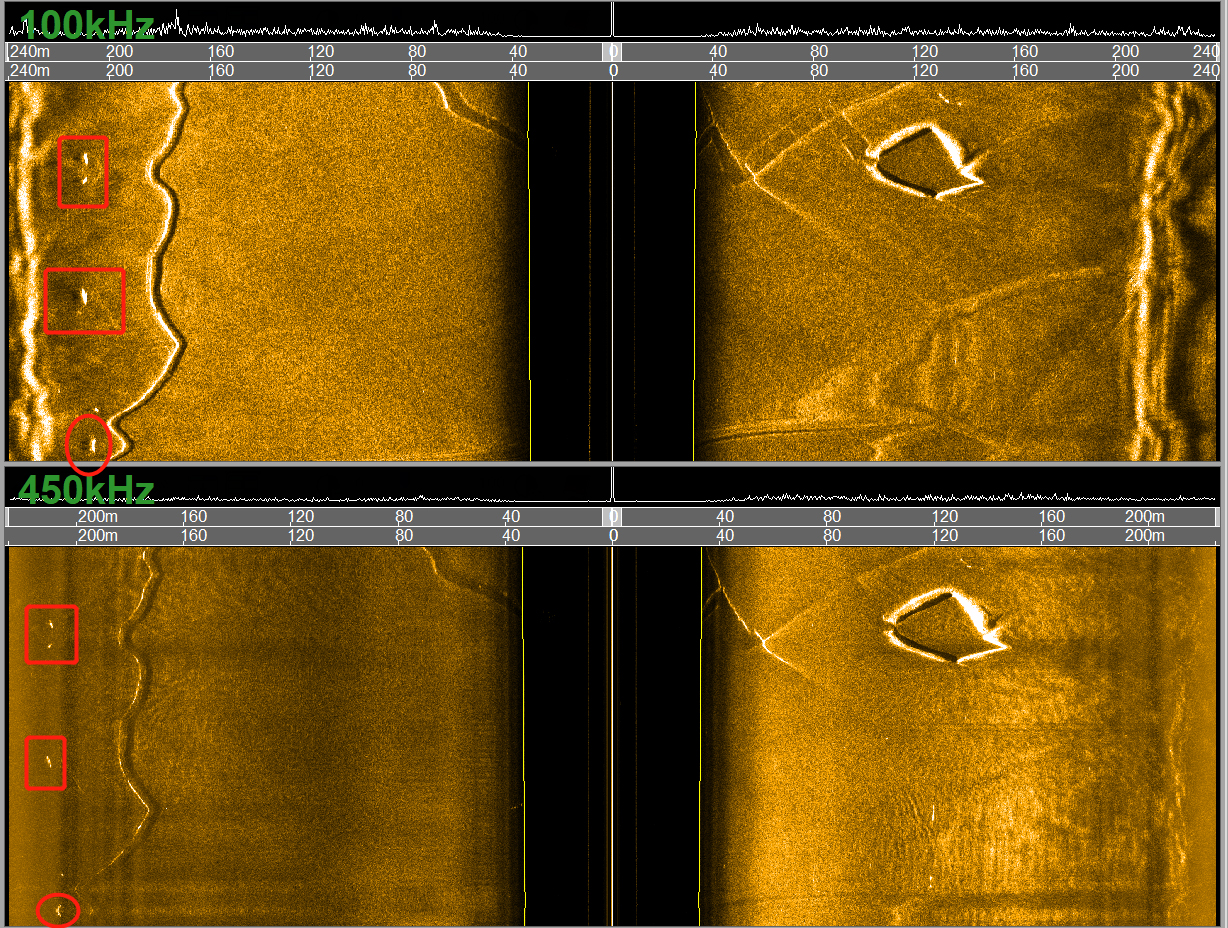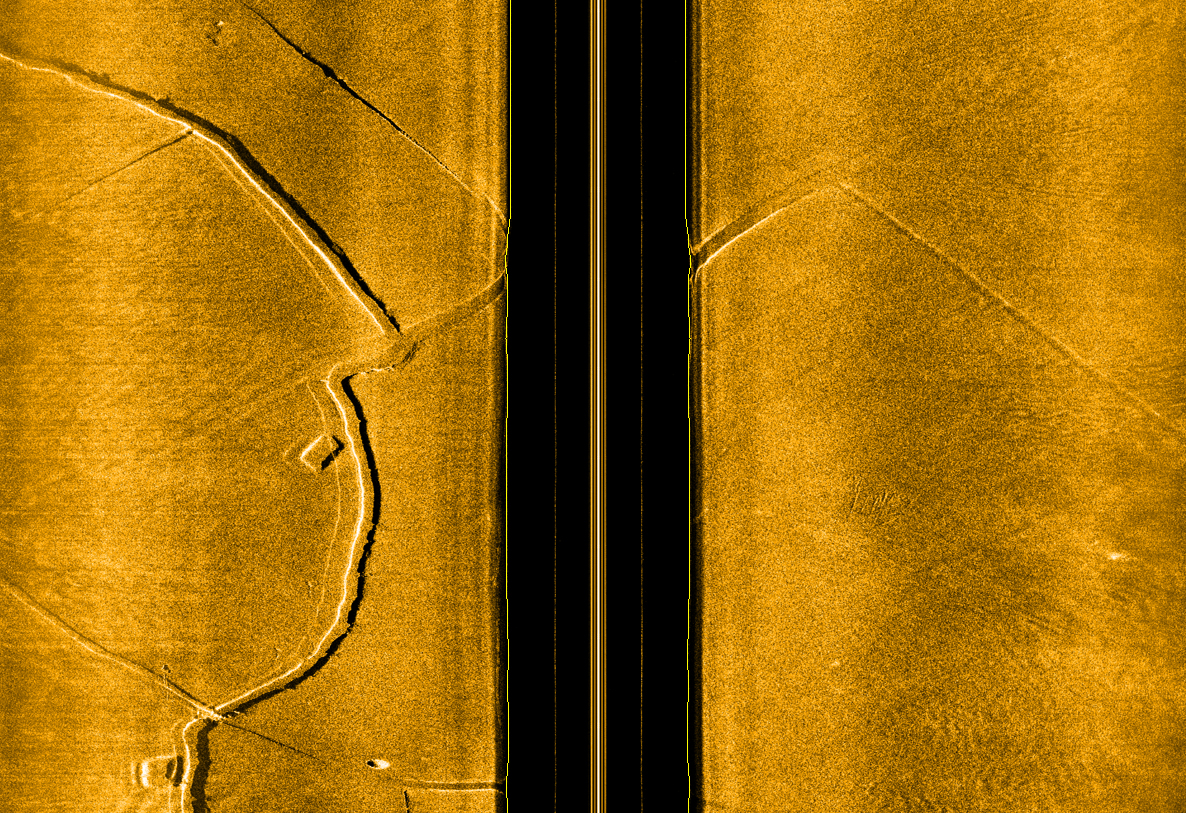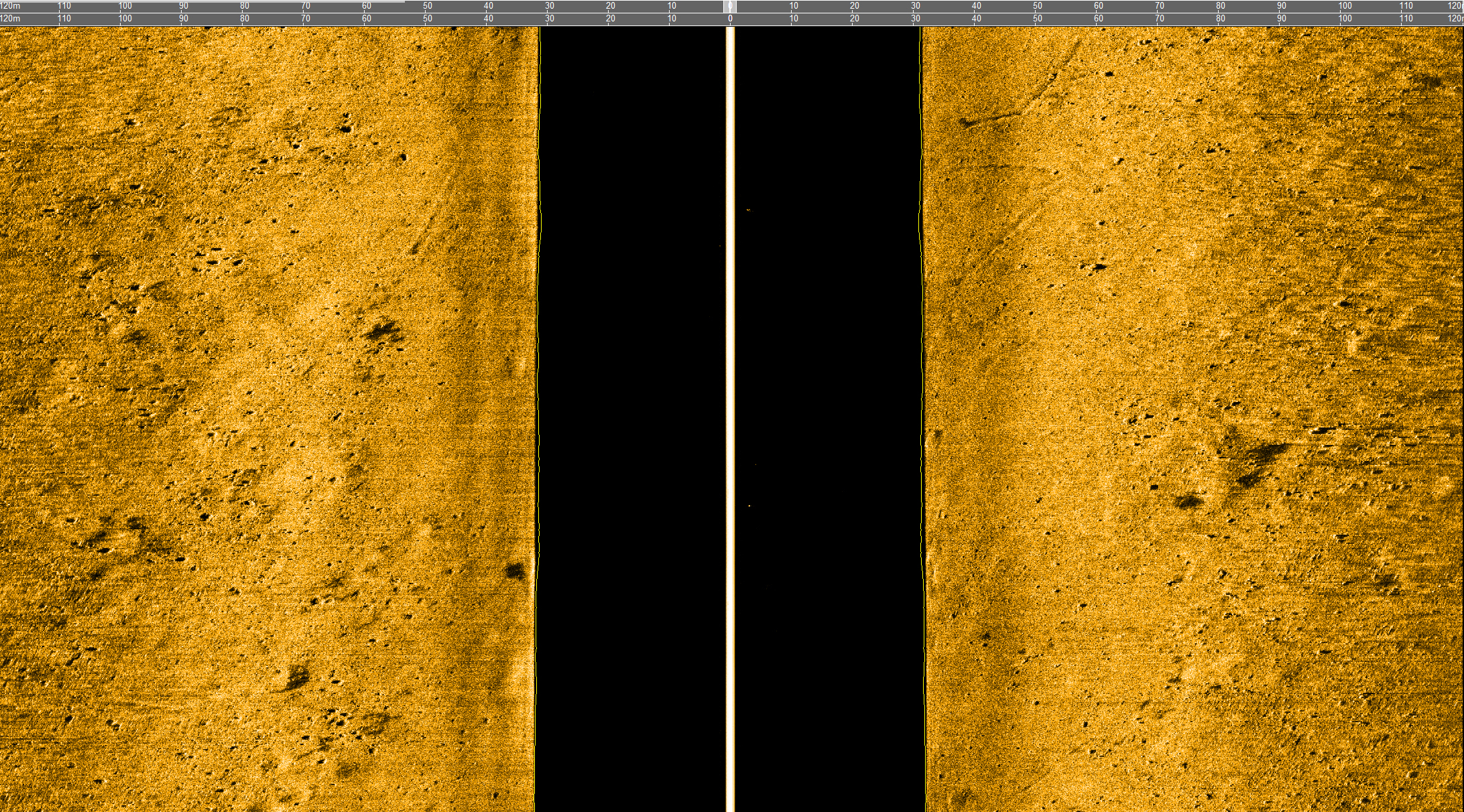







The multi-beam side-scan sonar stands as the top-tier product in the side-scan sonar field. Using advanced dynamic focus technology, the Shark-S457M delivers significantly improved along-track resolution, making it ideal for mine clearance, emergency search and rescue, and small target detection. With an increased maximum operational speed of 12 knots, it greatly boosts survey efficiency. Additionally, in turbid waters or for wide-area scans, the Shark-S457M multi-beam side-scan sonar supports a low-speed, dual-frequency mode that can be switched in real-time, achieving an optimal balance between speed and resolution.
The system’s core components include a pressure-resistant towfish, a high-strength Kevlar cable, a waterproof deck unit, and proprietary OTech sonar software. The towfish is available in a 66 kg stainless steel version or a 46 kg carbon fiber version and can be deployed in multiple ways, including towing, hull mounting, or side-mounting. It features a robust and durable structure. To enhance underwater safety, we included an overload protection pin on the towfish that breaks upon impact. Its hydrodynamic design ensures steady towing, and an optional depressor enables it to reach greater depths. The system has an ultra-low power consumption design and supports both AC power supply and battery inverter power.
The proprietary OTech software includes features such as real-time image mosaicking, sonar image display, survey line planning and navigation, track tracking and coverage display, data recording and playback, target management and export, and multi-window sensor information display. The sonar image adaptive equalization technology ensures consistent display quality for both near and far images. With minimal parameter settings and a user-friendly interface, the software is easy to operate. It supports output in standard XTF format, enabling processing in third-party software.
Key Features
• Dynamic Focusing Technology significantly enhances resolution
• High-speed and low-speed dual-mode can switch real-time online, allowing flexible operation mode selection.
• Dual-side 14 beams, capable of towing speeds up to 12 knots.
• Real-time online switching between Chirp frequency-modulated signals and CW continuous wave pulses.
• Built-in attitude sensor and independent single-beam echosounder with an alarm triggered when preset limits are exceeded.
• Lifetime acquisition software without annual fee.
Sonar Specifications | Shark-S457M |
Number of Beams | 14 beams (7 per side) |
Operating Frequency | High-speed mode: 450kHz; Low-speed mode: 100kHz / 450kHz simultaneous |
Pulse Type | LFM (Chirp) / CW, 60 kHz bandwidth |
Maximum Range | 600m @100kHz; 180m @450kHz |
Beamwidth | Horizontal: 0.56° @100kHz; 0.12° @450kHz; Vertical: 50° |
Resolution | Along-track resolution: 450kHz: 18cm @75m, 36cm @150m; 100kHz: 0.01h(range); Across-track resolution: 1cm |
Transducer Mounting Angle | Adjustable downward angles of 10°, 15°, or 20° (factory set to 20°) |
Maximum Operating Depth | 1000m |
Towfish Dimensions / Weight | 2030mm(L)×130mm(Dia.) / 70kg |
Deck Unit Dimensions / Weight | 227mm(L)×192mm(W)×50mm(H) / 1.9kg |
Power Supply / Consumption | 220/110VAC,75W |
OTech Software | Real-time mosaicking; OTSS & XTF data output format; supports SDK |
Tow Cable | Kevlar cable, 50 meters (customizable); optional winch |
Standard Built-in Sensors | Single-beam echosounder, attitude sensor (pitch, roll, heading), pressure sensor |
Operating Speed | High-speed mode: 2 - 12 knots; Low-speed mode: 2 - 6 knots |
Applications
• Military applications include mine countermeasures and small target scanning.
• Emergency search and rescue, drowning assistance, and recovery operations.
• Maritime channel management, including scanning for sunken ships and lost containers.
• Classification and analysis of marine geological and geophysical surveys.
• Archaeological surveys, including the search for underwater ancient cities and shipwrecks.
• Route surveys for the installation and maintenance of cables and pipelines.
• Seabed topographic surveys for offshore wind and other renewable energy sites.


